Подпишитесь на «Журнал «Financoff»
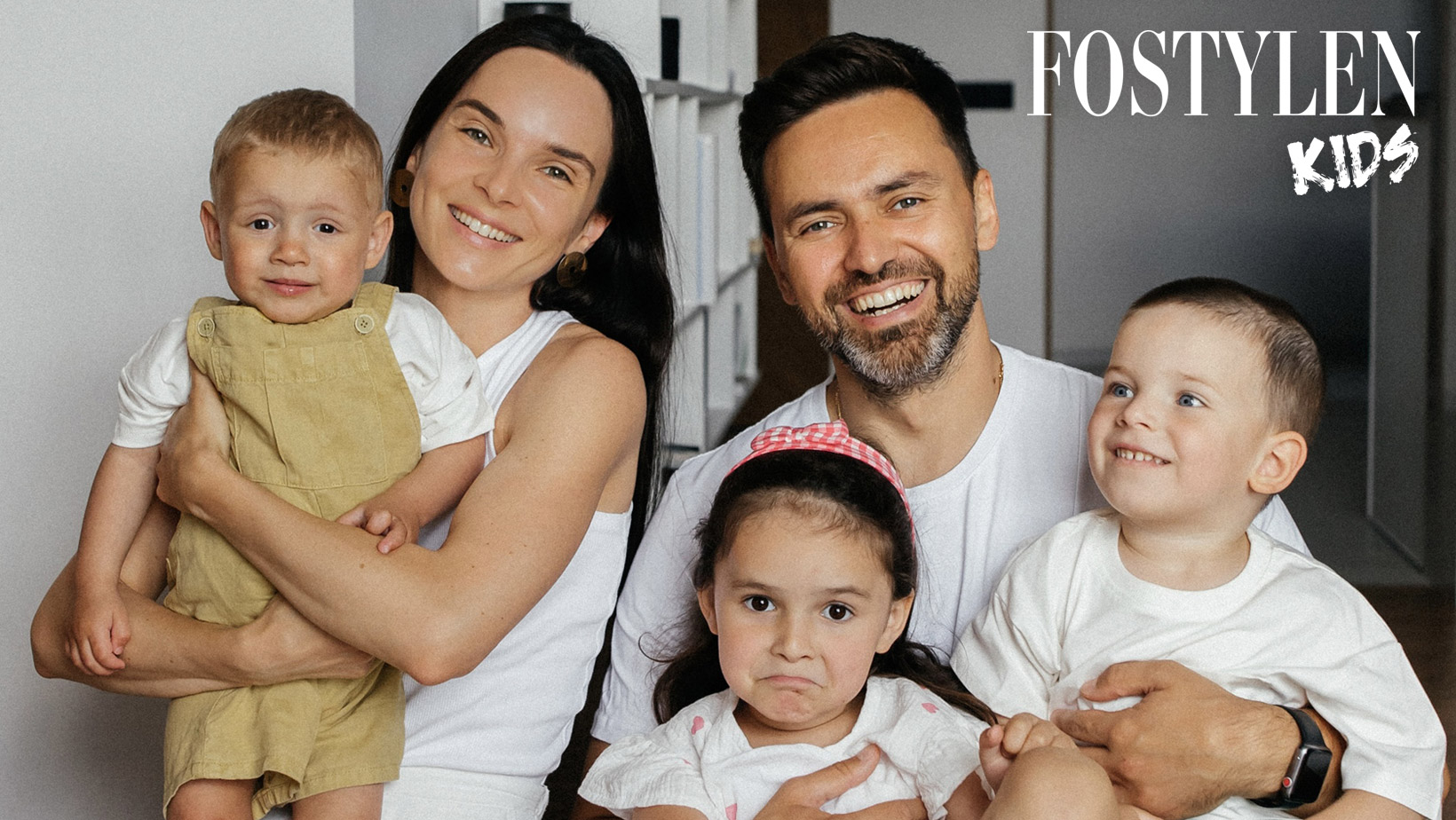
Today, we had the pleasure of speaking with Inna Miroshnychenko – a lawyer, TV host, blogger, mother of three wonderful children, and wife of the renowned presenter Timur Miroshnychenko. Inna candidly shares her experience with adoption, discusses the challenges and joys of motherhood, and reveals the values that underpin their family. This interview unveils the unique story of a family where boundless love and support play a pivotal role in upbringing and mutual understanding.
Inna, how do you find a balance between your professional duties as a lawyer and your responsibilities as a mother and wife?
Firstly, I don’t harbor any illusions and don’t try to be the perfect employee of the month or the world’s best mother or wife. I understand that when you’re juggling so many roles, something will always give. So, I prioritize what I need most at the moment. There are days when I’m totally a mom. There are days when my husband and I escape together. And there are days when I dive into work. Everything in my life brings me immense pleasure. I understand the impact of everything I do, and that’s why it’s all in my life. The secret is just that I want to combine it all. I like it all. So, if I want to work, I understand that I’m foregoing time with my child and my husband. That’s probably the answer to your question. It’s impossible to be 100% amazing at everything. You have to compromise from time to time.
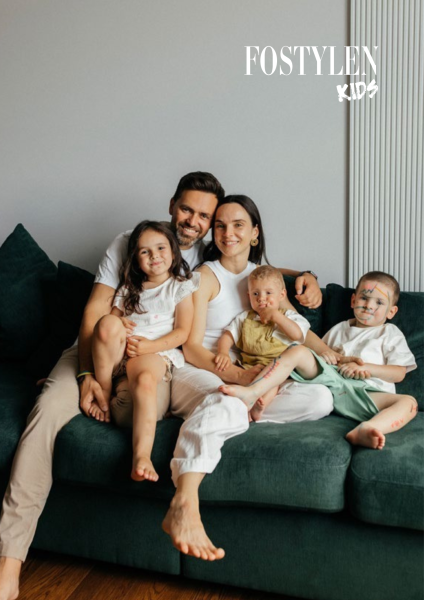
How do you manage to support each other in raising your children, especially considering your public activities?
It’s not that Timur and I sit down and discuss our vision for raising our children. We got married quite quickly, and soon after, we had children, but we were lucky – we share the same view on everything, including raising children and our goals and the most critical moments.
So, I know that when making a decision, Timur would make the same one. We consult on every point, but it’s more about sharing because we know that no matter what we might say, Timur will always support me, and vice versa. We never had differing opinions on any aspect of raising our children, and publicity doesn’t affect this at all. It’s just that we are similar in values.
I think it’s important that we meet at a relatively conscious and mature age. I was almost 30 years old, and Timur was just over 30. We have already formed individuals, clearly understanding who we are, what we want from life and from a partner, and what we can give to a partner. We quickly realized that we were right for each other, and we had no false notions about what our relationship should be like.
Another positive aspect is our rule to discuss everything. So, I believe we resolve conflicting situations and differing views right at the start when we sit down to talk, present our arguments, and thus arrive at our joint decision.
Does your legal experience help in dealing with bureaucracy and legislation in adoption cases, especially now that you’re adopting another child yourself?
Absolutely, 100%. It helps us enormously at all stages. Generally, understanding legal structures, how laws and rules are built, and how the bureaucratic system functions, is very beneficial. Because I have extensive experience in communicating with people who don’t want to communicate with me, I have no problem calling thousands of times on phone numbers where I get impolite responses. I’ve practiced this skill for years, calling tax offices, courts, and other state agencies, trying to get information or contacts.
This armor, which allows me not to react to emotions conveyed over the phone, greatly helped me achieve important news when we were told that the profile was current, and this is our son. Now, talking to many people who take adoption courses after us, I see how their rights are violated, and they don’t realize it because they don’t have a legal background.
Listening to their stories, I offer my advice, and they get new perspectives. I understand how my knowledge helps us accelerate our adoption journey, and I hope it will be just as useful in the future.
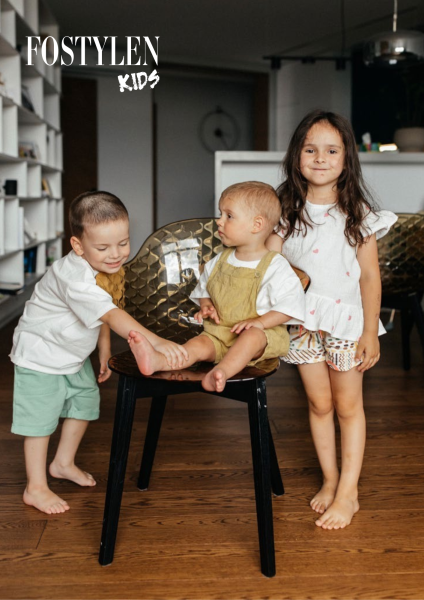
My main goal is to use my knowledge and skills to reform the system, simplify it, and make everything work so that children get into families faster. And that the bureaucratic machine works to protect children, not to profit from them.
What have been the most enlightening moments for you as parents during the adoption of Marcel?
Raising a child deprived of parental care who has spent some time in an institution teaches you unconditional love. And it’s in these circumstances that you understand the meaning of unconditional when you fully love and accept a child. Not because you dreamed of them, carried them, gave birth to them, or invested in their development from the first year of life. No, you took a formed personality, not just any formed personality, but a traumatized one, and accepted her no matter what, giving her love. This is what the adaptation period with Marcel taught us. We were kind of prepared for it, but in reality, you can’t prepare for this. You just have to feel it and allow this unconditional love to heal wounds. Because when we talk about our biological children, who were born into a family and have been loved since birth, they still give you something – a smile, a look, a touch, a reaction. This is a certain feedback when we interact with a child. In the case of a child from an institution, there is no such feedback. On the contrary, there is more destruction and devastation. The child destroys everything around them and destroys herself because she is so traumatized that she doesn’t understand how to coexist harmoniously in this world. We really learned about absolutely unconditional, total love and acceptance. I hope we have learned to show it, and thanks to this, our adaptation was actually quite short because we were prepared. Knowing the child’s history, not knowing what to expect, prepared for the adaptation to take several years, but it only took a few months for us.
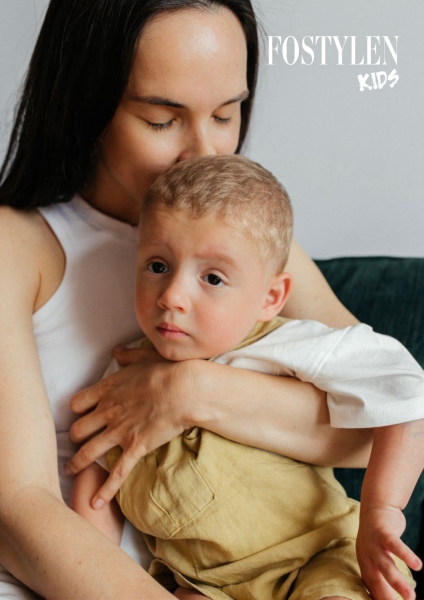
How do you choose what information to share publicly about your family, especially regarding adoption?
We share almost everything that happens in our life. We don’t hide anything, don’t divide, don’t try to put on rose-colored glasses for people so they don’t romanticize adoption. It’s a challenging journey, a complicated process, it’s not for everyone, but we talk about it through a prism of light and love because that’s genuinely what we feel. I am convinced that many people can discover this potential for great, deep love in themselves, but they are afraid, and I want our family to shake them up a bit, so they sit down and ask themselves: “Maybe I too can love myself, the world, children, people so much that I take into my family a child who needs this love so much?”, and their answer would be – “yes”. So, we share absolutely everything. Well, maybe we don’t tell some details that are really unnecessary to anyone, which only concern us, and won’t help, motivate, or protect anyone from, for example, wrong decisions.
How do you cope with fatigue and stress to remain effective as a mother and professional?
We certainly didn’t try to be superheroes who carry everything on their shoulders. We immediately went for the adoption of a third child, realizing that we could use external help – these are our parents. We can hire a nanny, we can involve people who will help us with household chores, and this was important for us. I know many families who independently raise three or four children, including adopted children of different ages, and so on. They do it without support, they are great heroes. We immediately understood that without the help of outsiders, it would be extremely difficult for us, and that’s why we do not hesitate to ask for this help now.
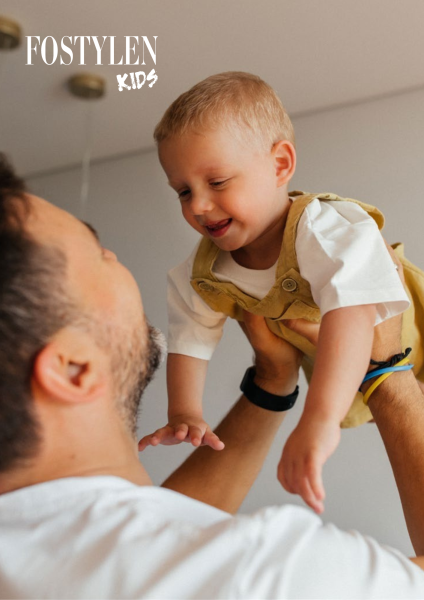
Of course, the first four or five months with Marcel were mostly mine, but alone I couldn’t cope with three children. Timur was mainly on business trips and on set and even organizing the household with three children – attending kindergarten, doctor’s visits with someone sleeping, and so on – was already a difficult path. This is not to say that I can’t do it, I can, but if you live like that every day, it is exhausting. That’s why I immediately turned to my parents, Timur’s parents for help, so they gave me a day off. During this time, I was taking care of myself, going to sports, doing some procedures, and meeting friends, I didn’t see the children. I rested because, first of all, the children have a mother, and her psycho-emotional state depends a lot. So, I take care of myself, and of harmonious relations with my husband, so that the children grow up in an atmosphere of love and happiness, where all the people around them are absolutely happy.
What personal moments or rituals help you relax and maintain emotional comfort?
We include in our weekly schedule sports, meetings with friends, breakfasts, or lunches in different ways, and time to be together. And work. This may sound strange, but work helps distract from household issues, and household helps distract from work. The main thing is not to direct too much energy. That is when I work there until 10-11 in the evening, and I need to simultaneously put the children to bed. Of course, I get very exhausted, but if you distribute everything correctly, which unfortunately does not always work out, we try to do this, by planning our schedule, then there is enough energy for everything.
How have your relations with Timur changed, and do you find time to be alone at all?
The relationship has not changed. Although Timur would say that they have become even stronger and brighter. I think they were at their peak and have been maintained throughout all 6 years of our married life and 7 years of living together. But there is indeed even less time now. However, if you look at Timur’s lifestyle – he is constantly on business trips, and constantly at work. So the number of children does not significantly affect how much time we can spend together. It adds just that we want to spend even more time with the whole family, and therefore, of course, there is a little less for us two. But we are not complaining, we are satisfied. The most important thing – I don’t have any formula for how much time exactly needs to be spent with a husband. Yes, we have very little of it. I think if you tell, count, how rarely we are alone, someone will say that this is very bad for the family. But the most essential thing is that everyone in our family is happy – the children are happy, we are happy. We now have very young children, and for us, it is indeed a priority – to give them more warmth, to spend more time with them than without them. Although, as I said, we also include time just for the two of us, not as much as psychologists recommend, but enough for us to feel happy.
What values do you try to instill in your children’s upbringing, considering your experience and professional knowledge?
We want our children to grow up in an atmosphere of absolute love. Then, when they are loved for who they are, not for what they are. We want them to understand that they are not obliged to meet someone’s expectations, not obliged to be as someone wants or as everyone wants. We want them to strive to be happy, to include in this concept of happiness, we will definitely support them in all their decisions.
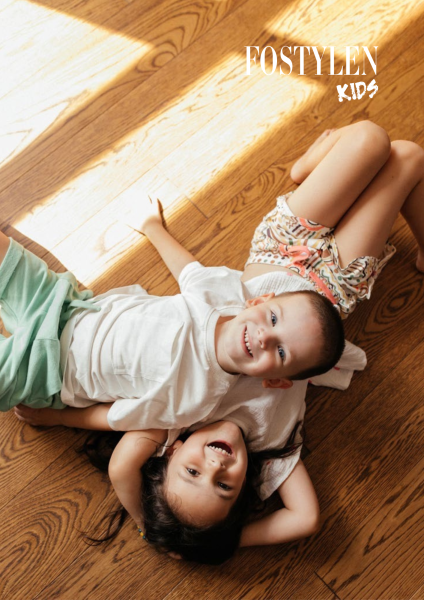
Even if we consider this decision wrong, we will still support it. Of course, we will try to explain our worldview, but in no case will we press and trust the child. We are already making decisions that concern the whole family, the whole family. We ask the opinion of all the children who can express it. Timur in another way – concerns whether we go somewhere, we ask, for example, about plans and so on. What are we cooking – any small issues that are important for the child: furniture, which furniture to buy for the children’s room. We consult with the children because we perceive them as adult family members, absolutely equivalent, just less experienced. So we try to explain our vision to them somewhere.
Well, of course, it is clear that if they want to eat candy every day, then we intervene with our worldview. But in general, we want the children to grow up happy. They don’t have to be successful or rich, they have to love life, and themselves and rejoice in everything that happens to them. This is the most important thing.
Interview prepared by: Yuliia Yarmarkina